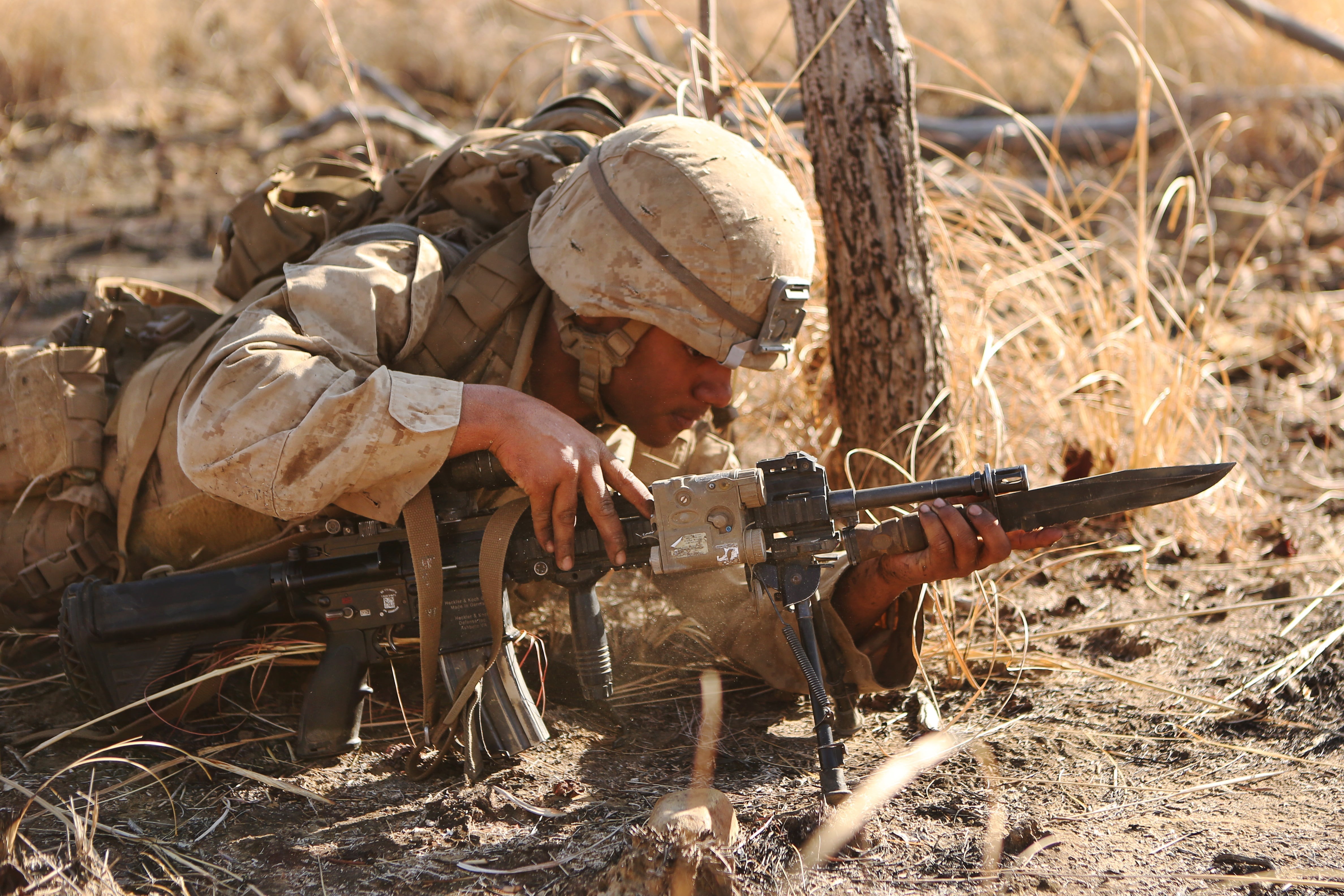Some aspects of warfare have changed very little over time.
While many top military leaders often talk about about cyber capabilities, fifth-generation fighter jets and training with virtual reality, the Marine Corps continues to demand gear that would be familiar to Roman warriors 1,000 years ago.
Andrew Howell, a managing director with the British company BCB International, stood on the sprawling vendor exhibition hall at the annual Modern Day Marine gear show selling flint sticks and steel strikers for Marines to use for starting fires.
“This is low-tech,” Howell said as he scraped the flint and created a small shower of sparks, demonstrating it as part of a kit for cooking in the field.
“Marines want a survival kit, so when a cyber attack happens and all the systems get knocked out, they can be self-reliant. I think it’s a good strategy.”
BCB sells field-cooking kits to the British Royal Marines and Howell hopes the U.S. Marines will order some, too.
The Modern Day Marine conference at Marine Corps Base Quantico is the largest annual gathering of Marines and defense industry professionals who showcase their wares in the hopes of landing big contracts with the Corps.
Amid the massive radar systems on display and software engineers showing off intelligence analysis tools, a salesman with the Ontario Knife company displayed one of the most ancient weapons of war.
“This is the Marine Corps’ bayonet,” he said, lifting from the table a knife with an eight-inch, double-sided black blade and brown handle.
The Marine Corps bought tens of thousands of the OKC 3S bayonet back in 2003 and has not bought many since then, Yates said, because the knives are nearly indestructible.
“It’s a hunk of steel. It doesn’t break. And it never gets out of date,” he said.
The standard OKC 3S bayonet, issued to most Marines, retails for $184.
While very few Marines have needed to use the bayonets in close-quarters combat, they double as a survival knife and remain a vital piece of an infantryman’s kit for cutting rope, opening food, or for use as a makeshift screwdriver or a small crow bar.
“Everybody needs a knife,” Yates said.
Across the sprawling vendor floor filled with elaborate signage and flat-screen TVs displaying promotional videos was a booth for the Fits company, which was adorned with hundreds of socks.
The company sells “tactical” socks made from merino wool reinforced with nylon. The socks have deep and well-defined heel pocket to keep them from slipping and the fabric is thinner at the end “so it doesn’t bunch up by your toes,” said Luke Eldridge, a partner with the Fits company.
The socks retail for $19 but are available for $12 in Marine Corps exchanges, Eldridge said.
Some military leaders may be losing site of the strategic value that low-tech supplies can provide, Howell said.
“At the moment, the American military cannot have a cup of hot coffee in the field,” he said, as he showed off his company’s “crusader cup canteen” that can be used with its “Fire Dragon” heating system.
“If you’re trying to win hearts and minds, making a cup of coffee for the right person at the right time can be critical.”
Andrew Tilghman is the executive editor for Military Times. He is a former Military Times Pentagon reporter and served as a Middle East correspondent for the Stars and Stripes. Before covering the military, he worked as a reporter for the Houston Chronicle in Texas, the Albany Times Union in New York and The Associated Press in Milwaukee.




